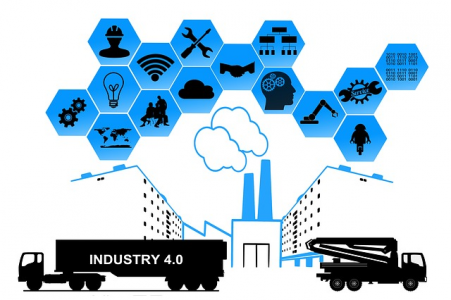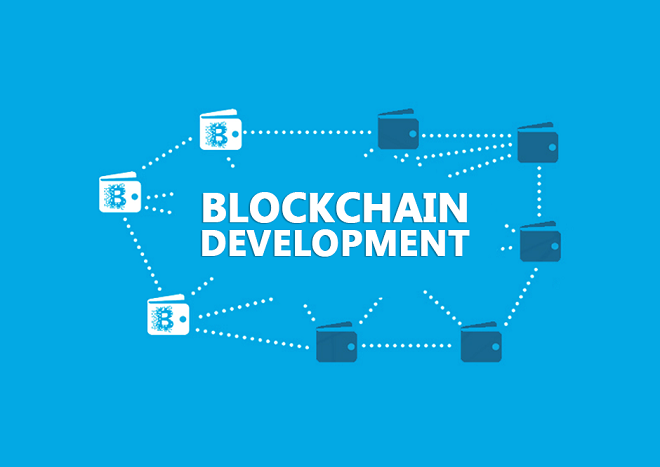The term “cryptocurrency” is a misnomer. A common misconception, held by many newcomers to the blockchain world, is that the technology’s potential lies solely in the banking and financial industry. In fact, the recent suggestion of the Indian government to rename cryptocurrency as “crypto assets”, and Warren’s Buffett’s belief that Bitcoin is not in any way a currency, are perhaps closer to the true nature of cryptocurrency than the commonly held belief that it is simply digital money.
Cryptocurrencies should not be seen as just money, but as tools. Blockchain technology, which underpins cryptocurrency, has potential in many more forms than just as a medium of exchange and store of value.
The application of this technology to industries as varied as supply chain management, fashion and publishing is a result of the innate flexibility of blockchain. The nature of a platform can be programmed to suit a variety of needs. The sooner an investor realizes this, the sooner they will see how exactly it might be applied to different industries, giving them a degree of clarity with can help them measure the potential of a project to disrupt a particular industry.
Given the immense potential of blockchain, we take a look at 24 industries that will be upended by its imminent commercial arrival.
1. Financial Services

Without a doubt, the most popular application and the launchpad for cryptocurrency into the global economy is the financial industry. The issue with today’s banking systems, as sophisticated as they are compared to decades past, is that they lack inclusion and fairness. Interest rates and transactions are heavily lopsided in favor of financial companies, and customers gain little from their interactions with banks.
The situation is made worse when one notes that banking services are absolutely necessary. Individuals are forced into unfair deals. Additionally, there are billions in the world who have no access to a bank at all, which is an even worse circumstance to be in.
Cryptocurrencies and blockchain can universally rectify the situation. With a smartphone and an internet connection, both of which are widely available, anyone can bank, start a business and receive payments. With incorruptible ledgers and no centralized authority for oversight, financial services on the blockchain would place power back in the individual’s hands, offering solutions without exorbitant interest rates and middleman fees. The banking industry even suggests that up to $20 billion can be saved by eliminating infrastructure and middleman costs.
Bitcoin has first mover advantage, and we need only look at the news to see how Bitcoin has disrupted the financial industry. Ripple comes from a different angle – it seeks to work with banks and not do away with them. Ripple has drawn attention for its notable partnerships with many banks, most recently with Saudi Arabia’s central bank. Its emphasis on speed for large global scale transactions between banks and its growing network of participating banks has made Ripple a true disruptor.
Another cryptocurrency to keep an eye on in this space is OmiseGo. It is an Ethereum-based platform that has one very clear goal: to offer the full range of financial and payment services to any individual. They have an eye on the developing world, where many citizens are without a bank account. Their platform is designed to be agnostic between currencies – it does discriminate between fiat and cryptocurrency usage. A secondary objective is to help people transition from fiat usage to cryptocurrency usage.
2. Publishing

An example of a rather unexpected application of blockchain, the publishing industry too can benefit from decentralization.
Today’s publishing industry is largely in the control of a small group of publishers. It can be difficult for a yet unrecognized writer to break into the industry, and their success is dictated by the whims and fancies of these publishers. Digital publishing and the internet has made it easier for writers but even then, the scale and recognition of traditional publishing is still lacking.
A platform like Authorship is set to overturn the current system, where influence is in the hands of publishers, by using a tokenized system that recognizes the work of any writer. Publishers can choose to digitally publish writers and print their books, should they feel convinced of their quality and should demand exist. The token system ensures that writers get their fair share of pay. Writers can also write and publish without the assistance of publishers. Translators will also receive payment and approval from publishers if they choose to translate a work.
The lesson here is, in whatever industry financial mechanisms favor one party over the other, blockchain can come in to equalize the system and ensure that everyone gets their fair cut.
3. Apartment Rentals/Real Estate

Long-term rental is the norm for the younger generation and it, in fact, may be the more prudent living option. The business of finding a house or apartment, interacting with landlords, handling security deposit and establishing ground rules is a painful one. Young working adults are in desperate need of a solution that makes housing arrangements simple and as efficient as possible, preferably without any third-party involvement.
The young minds behind Rentberry, a blockchain-based renting solutions platform, have faced the problems themselves: outdated renting platforms, unrecoverable security deposit, bidding wars with other would be tenants and endless paperwork.
The Rentberry platform employs smart contracts to make finding and renting out a house seamless. Because it directly connects landlords with tenants, it removes brokers and their exorbitant fees from the rental equation. It is also easier for potential tenants and landlords to screen each other, make decisions, establish financial terms and offer payments, because of the auto-enforcing nature of smart contracts.
Like Rentberry, Atlant uses smart contracts to guarantee rental agreements so that neither parties can back out. However, Atlant turns its focus slightly more towards property purchasing. Sellers can list their property assets on the blockchain and, once verified, tokenizes the property value. It then takes the form of a Property Token Offering, where buyers can buy the property. The tokens of this particular purchase can be traded on a decentralized exchange.
Beetoken is yet another project in the property space. They aim to establish a P2P network of hosts and guests – like Airbnb but on blockchain. Users are assured security through KYC processes. Services like Airbnb do face the problem of fake reviews and such an issue is remedied by blockchain’s immutability and trust.
4. Healthcare

Healthcare is a pillar of any national economy. In America, it contributes to a fifth of the national economy, which amounts to roughly $3.8 trillion. Unfortunately, the industry is difficult to modernize on a large scale and is hindered by obsolete processes, legacy data management systems and outdated infrastructure.
Patient data is a crucial part of the medical industry. Secure storage and data access, which could protect and make efficient diagnosis, is possible with blockchain. There are possibilities for the healthcare industry to partner with tangential services of other industries, such as insurance. ICON (ICX) is working on creating an ecosystem where this kind of inter-industry collaboration can exist.
The existence of legacy systems is especially noticeable in developing nations, which are many steps behind their developed counterparts. Blockchain could quickly bring these nations up to speed , rapidly modernizing their healthcare services, which would better patient healthcare and generate revenue.
Patientory, which raised over $7 million in 3 days in their ICO, aims to improve the healthcare space by offering a secure space for stakeholders to store and manage data. Their target audience is patients, providers and healthcare organizations. Patients can easily access their data and hand it over to providers, who may not have a complete history of the patient’s health but will be able to view notes from previous providers and organizations. The organizations benefit from cheaper, secure and efficacious record storage.
DokChain aims to provide cheaper and more efficient solutions to patient data processing. They are operating on a slightly larger scale, developing a platform for a broader range of industries including insurance.
Gem and Tierion are two other blockchain projects working in the healthcare space.
5. Music

Like publishing which favors publishing companies, the music industry is also unfairly structured in favor of recording labels. Musicians have frequently derided streaming services, stating that they have siphoned a lot of earnings away from them. This is sadly true, but we have crossed the point of no return in this matter. Streaming is the way of the future but it behoves us to ensure artists earn their fair share of royalties.
Much of the earnings from music sales go to recording labels. Some musicians have therefore directly released their albums to fans. Thom Yorke and Nine Inch Nails have released their albums on P2P networks, and Bjork has even permitted fans to pay for her album Utopia with cryptocurrency. Additionally, an increasing number of artists are beginning to accept cryptocurrency in their online stores.
Blockchain now allows fans to connect directly with artists in a manner that is efficient and secure.
Two popular blockchain startups operating in this space are Mycelia and Ujo Music.
There are a number of ways in which Mycelia could benefit artists. Imogen Heap, who founded Mycelia, wrote in the Harvard Business Review that she believes blockchain can help license copyrighted music in an easy manner that suits both the requestor and the artist. A noteworthy element of Mycelia’s platform is the “creative passport”, which serves as a record of an artist, their works, tour dates – it is very social media-like, all but a necessity for artists today.
Ujo Music has also received the backing of Imogen Heap. With their “Creator’s Portal”, artists can publish, license and be compensated for their work through Ethereum. It will also make it easier for artists to be discovered and supported by the community. Voise, a platform that has a concentrated focus on streaming, operates with similar intentions.
6. Supply Chain Management

The supply chain industry is one fraught with many challenges, most of which are concerned with curtailing rising costs and efficiently supplying products to retailers and customers. It is valued in the hundreds of billion dollars worldwide and is set to grow as demand increases proportionally with spending power.
However, the industry faces several intractable obstacles. Fuel costs are ever on the rise, which makes transportation an increasingly expensive activity. Overproduction of products wastes precious resources like water and electricity, as well as taking up space and eventually becoming harmful waste. It is an industry whose challenges affect our very planet.
Smart contracts offer a potential solution to this problem. Imagine if an industry as significant as the automobile industry utilized a system in which cars would be manufactured only when a fixed number of requests were received.
With smart contracts, it is possible for funds to be locked into a contract, whereupon manufacturers would begin production only after a certain number has been reached. It would eliminate the worry of overestimating demand and resource consumption, and could also eliminate middlemen by directly connecting consumers with manufacturers.
VeChain and ShipChain are two blockchain projects that want to transform this industry.
VeChain aims to establish a business ecosystem that is autonomous and self-circulating. The use of NFC chips to counter theft and fraud has been popular with markets like liquor and tobacco, and they have partnered with China’s National Research Consulting Center (NRCC) to this end. They also show interest in automobiles, retail, agriculture, logistics and food/drugs.
ShipChain is also striving for the same goals with its platform, with its solution of “track and trace” being implemented from end to end on shipping and logistics. This will let small carriers operate independently and shift reliance away from larger, better-financed shipping parties. ShipChain is also incentivizing operators by rewarding them for efficient transport routes and timely deliveries.
7. Government

There is little need to make a case for the need for decentralized systems in governance. In many parts of the world and, even in America which has long been held as the gold standard for democracy, voting power is manipulated and contorted to favor parties or even certain individuals. Nowhere is the principle of “one individual, one vote” more desired than in political voting systems, where the future of nations and the whole world is shaped.
Democracy Earth has created a peer-to-peer governance protocol for organizations. Budgeting takes place with bitcoins and smart contracts, and only you, the voter, have access to your voter information. Those in power will be held more accountable for their actions through the transparent nature of blockchain ledgers.
Horizon State is oriented towards actual voting for the purposes of governance. The platform allows for immediate recognition of votes at a fraction of the cost of traditional voting systems. The tokens of the platform are used as the ‘gas’ for voting and other services, which includes funding for campaigns.
Boule is another voting platform that is similar to Democracy Earth and Horizon State in its basic purpose.
8. Internet of Things

Along with blockchain and artificial intelligence, the Internet of Things is another technological development that is up and coming, with radically transformative effects. Essentially an internet connecting all devices, we are soon to live in a world where our smartphones can “talk” to our fridges and cars.
Naturally, such a system is fraught with potential security and transactional problems. The amount of processing that will take place is also unprecedented. Yet again, the brilliance of blockchain technology can answer these problems.
With no central system necessary, blockchain would make this heavy processing much easier to handle while also securing data in an encrypted format. Tokenized mechanisms can monetize transactions between different devices and seamlessly integrate different services. Waltonchain and IOTA (which utilizes Directed Acyclic Graphs, not blockchain) are two of the big names in this niche.
Combining RFID technology with blockchain and the Internet of Things to form what they call the “Value Internet of Things”, Waltonchain believes that a new business system will evolve where logistics, manufacturing, retail and infrastructure can share data securely. Because of RFID technology, the system will also feature product traceability and asset ownership.
IOTA is shaping up to be a practical, feasible way for machines to communicate with each other. The best way to describe the project is through a potential scenario: imagine driving a car registered on the IOTA network through a toll booth. As you pass through the toll, the car communicates with the toll and automatically makes the transfer. We live in a world that is increasingly dependent on machines, so you can imagine the potential of a system that automatically executes those dependencies.
Hurify is another project in the IoT space that aims to accelerate the growth of the industry. The platform allows developers to find IoT development jobs and improve their skill set more easily. Clients can find the right talent for their IoT projects and lower their overall costs.
Samsung and IBM are also working together to this end, on a blockchain initiative called ADEPT.
9. Cloud Computing/Distributed Computing

Computing power is quickly becoming a fundamental necessity, like electricity and the internet. Many of the tasks that we do today, and certainly those in the scientific and entertainment industries, require heavy computation. The trouble is that it requires resources that are currently only accessible to major corporate powers who have the funds to operate powerful systems.
The distributed nature of blockchain changes that, as it lets any user across the world utilize the computing power of ordinary computers to perform computationally-intensive tasks. Golem Network is working on precisely this, letting people rent out idle computing resources like bandwidth and processing power to others who can use it to render CGI and perform scientific calculations.
SONM, or Supercomputer Organized by Network Mining, targets similar goals through similar means. Distributed computing will let users offer their idle computing resources for general purpose computing. SONM also envisions the use cases of video rendering and scientific processes like DNA analysis.
Elastic is another project operating in this space that is worth keeping an eye on. It is an open source P2P platform that works on a proprietary language called ElasticPL. The key difference here is that users are able to model their problems with the programming language
This is a particularly significant use case with the potential for global ramifications. In a world where computers are involved in almost every kind of work, it can give less financially privileged entities the power to compete with larger ones.
10. Insurance

Insurance policies are approved through the verification of the insured party’s data. The approval of insurance and payout of claims are still severe pain points for the industry.
InsureX (IXT) markets itself as an alternative marketplace for insurance. The insurance market has several layers of intermediaries, making approval a frustrating chore. The process is inefficient and lacks ease of communication. InsureX’s goal is to encourage new business models, increase transaction speed and insurance approval, reduce risk through better data access, and improve customer experience.
Etherisc is an insurance platform that puts an emphasis on decentralized applications. They already have a few dapps up and running, including crop insurance, social insurance and flight delay. Crop insurance protects the insured party against drought or flood, social insurance is similar to life insurance and the flight delay dapp issues policies and pay out claims against flight delay delays autonomously. They will host an marketplace for the capitalization of risks and insurance related services. In other words, what other marketplace-based projects are doing for computer resources, dapps and digital identity, Etherisc is doing for insurance.
Machine learning can also be integrated with smart contracts, as it is being done with SafeShare. This project has partnered with Vrumi to protect property owners against damage and theft to their homes caused by tenants registered on the Vrumi platform. SafeShare employs MetroGnoma, an open-source timestamping service, to validate claims in real time.
11. Charity

Charitable organizations purportedly use the funds they receive to benefit the cause they are supporting. However, in more than a few cases, the money is misspent or outright corruption occurs.
Blockchain’s ability to transparently showcase transactions on its public ledger makes it ideal for use in charities. The public, donating their hard-earned money for a good cause, can see how and where their donations are being spent.
There are several blockchain projects operating in this niche. Alice is a project that aims to help cash-strapped social endeavours through its blockchain-based crowdfunding platform. Giveth is an open-source, Ethereum-based platform that is similar to Alice, but also features a mechanism called LiquidPledging. This is when a donation is made via a delegate. Likewise, AidCoin is another platform that is aiming to make charity donations more transparent and immediate.
12. Blockchain-as-a-Service

Software is the backbone of every computing device, from the smartphone to the personal computer. The modular nature of it has helped many a developer create even more software.
Stratis offers end-to-end solutions for software development, making testing and deployment on the blockchain simpler. The project also features an academy where one can learn about development. Essentially, it is a Software-as-a-Service platform that provides blockchain utility to its users.
The applications used on the Stratis platforms are coded in C#. The team chose this language as it is popular in business applications and it is easy to maintain. Stratis’ salience lies in its ability to give organizations an accelerated and reliable way of creating a blockchain. This avoids the high cost that would occur if organizations had to develop a blockchain from scratch.
Ardor is another big player in this space. It utilizes the technology of the NXT platform to offer child chains. The project’s parent-child chain architecture will allow businesses to create products on customized blockchains that are secure and lightweight. Transactions can be removed from the child chain once over, to keep the chain free from bloat.
The child chains can run either on Ardor’s own tokens or one of the chain owner’s choice. This child chain supports a variety of features and makes the use of blockchain for a company simple, as opposed to building a blockchain from scratch. For a detailed look at Ardor, read our in-depth article here.
13. Messaging

Encrypted communication channels are already growing in commercial popularity, with Telegram being the most well-known. Now, more communication systems like Slack, Kik and Telegram are conducting ICOs to help establish blockchain platforms. Considering the size of the user base, a lot of money could potentially be raised.
There are several new entrants in this space that do not have a user base outside the cryptocurrency community. Crypviser is one of these. The Mercury Protocol, built on the Ethereum blockchain, allows integration with communications platform for end-to-end security in communication.
While the use of blockchain for these industries is not on the same level of change as the others, it is indicative of blockchain’s rapid adoption.
14. Digital Identity Management

Digital storage is now the go-to medium for the storing of data. It’s faster and has less of an impact on the environment. However, it’s not the safest. Numerous cyber attacks have taken place over the years and this has put the valuable personal data of millions of individuals at risk.
Blockchain’s encrypted ledger is the perfect solution to this shortcoming. SelfKey, a blockchain-based identity network, allows users, both individuals and companies, to control and manage their identities. The platform will connect users to utility providers and other requestors of personal data, such as bank accounts, residency, citizenship by investment and passport services. The provision of these services and validation of data will be fueled by the use of the KEY token.
There are several competitors in this space, including Civic and TheKey.
Civic provides multi-factor authentication through its blockchain platform and biometrics. The identity that is stored on your phone can be used to access a variety of services securely, and is shared with a particular entity upon request. Partners of Civic include Jaxx, Lykke, WikiHow, BitGo and TokenMarket, among many others.
TheKey also functions in essentially the same way; it has a multi-dimensional authentication tool that securely stores personal data on a blockchain which can be used to access different services.
15. Digital Advertising

Digital advertising is a massive revenue-generating stream and it will continue to grow in the years to come. It is the primary form of advertising in an age where people spend more time on their phones and laptops than they do in front of the television or reading a newspaper.
As has always been the case with advertising, the power to reach an audience and influence them has always been with those with the largest amount of money. This results in numerous problems, not the least of which is centralized advertising power. Users are bombarded with irrelevant and frequent advertisements. Data is collected and exploited to further target individuals. Lastly, little if any revenue goes to the individuals whose online content are used as advertising platforms.
Basic Attention Token is aiming to make the system more fair for content creators. The BAT token hopes to change that by letting users pay their content creators on a subscription basis, as well as giving them the option of receiving advertisements.
16. Credit

A lot has been said about blockchain disrupting the business of money, but the economy of credit and debt will also be similarly disrupted.
Blockmason, a project that is establishing a credit and debt platform, is seeking to bring blockchain to one of the biggest components of an economy, credit flow, that is estimated to be around $5 trillion in value. They plan to use the Ethereum blockchain to create a credit and debt ledger that features smart contracts.
WeTrust is platform that lets friends and families pool their money in together, in a process traditionally called a ROSCA. In bank-controlled ROSCAs, individuals leave the lending period with more money than they had before. However, the banks keep a sizable chunk of the interest. On WeTrust, the interest is kept within the ROSCA group since no third party is involved. This allows a group to support itself. In fact, WeTrust has been marketing this to friend and family circles. They also have a reputation system in place to ensure that no one backs out of an obligation.
PayPie’s objective as a blockchain-based credit project is to offer risk assessment algorithms derived from business accounting. The vast majority of SMEs undergo risk score checks and this is the niche that PayPie is seeking to serve.
17. Forecasting/Trading

Trading on the stock market is difficult. Buying and selling stocks is not as easy as one would wish it to be, and settlement time and costs could be lowered with a technology like blockchain. tZERO is attempting to bring blockchain to online stock trading. This would reduce settlement time and costs, and increase transparency and auditability
Augur is a prediction market that has multiple possibilities, more than just stock market prediction. Users can ask questions about the outcome of a future event, and buy and sell shares on the outcome of markets they wish to participate in. For an in-depth guide, read our article on Augur.
Stox is an open-source Ethereum-based prediction market where “users can make their predictions to generate their portion of a stake for a specified event.” Their marketplace is a major selling point of their platform, though it does not seem any different from Augur.
Gnosis functions in a similar manner to the aforementioned platforms, with users gaining Olympia tokens for successful predictions.
18. Energy

The energy industry is also hampered by middlemen. Blockchain technology could change that by letting individuals buy and sell energy through smart contracts. The energy used by individuals in homes could form a microgrid where communities become resilient to power outages, as well as reduce the drain on the environment.
This is exactly what LO3 Energy has done by establishing the Brooklyn Microgrid. The company itself states it best – they want reimagine how power can be generated, conserved, traded and shared.
Power Ledger claims to be the world’s first commercially-available energy trading platform of its kind. Users can trade electricity with each other and receive payment in real time. What’s interesting is that users can sell power that they’ve stored on their solar panels. Any excess power that isn’t essential could be sold for money.
Grid+ works with Artificial Intelligence to study your energy consumption pattern and purchase energy accordingly. This platform involves a hardware unit. The AI-based smart energy agent has access to multiple energy markets and can also extra energy generated from solar panels.
You can read more in our article about blockchain in the energy industry.
19. Job Marketplaces

For a while now, the systems of employment have been changing. Studies have shown that employees, along with with demands for good pay, wish for flexibility with work and the freedom to work from home. Employers have begun to take note that the mindset of employees and their criteria for happiness have changed while other studies have noted that the happiest employees are the ones who perform best.
Freelancing has grown immensely in popularity. While professionalism has grown on both sides, trust always remains an issue because there is currently no way to enforce it. Blocklancer wants to change that. The platform is essentially a freelance job portal where clients and freelancers can interact. Through the power of smart contracts, both parties are assured of their requested services. It is the freelancing portal freelancers love, but with the assurance of pay and delivery of work.
20. Fishing

The fishing industry is a major source of livelihood in the developing world, with over 500 million people depending on it. It remains a vital part of the economy, but is faced with growing calls of restriction from environmentalists and regulators who are concerned about environmental sustainability. It is this kind of situation, where both parties have justifiable arguments to support their cause, that blockchain can help achieve a compromise.
Overfishing is a serious threat to the environment and over 30% of the world’s fisheries have exceeded safe fishing levels, the result of which is permanent damage to the ecosystems and the extinction of species, like the Atlantic bluefin tuna. Of course, it also affects the communities that depend on a sufficient aquatic population to make their living.
In international waters, there are few regulations to curtail fishing. Not only does this blatantly flout whatever few regulations exist to prevent harm to marine life, it also hurts the economy. $23 billion has been lost due to illegal fishing. What’s worse is that the illegal fishing industry is supported by slave labor.
Overall, the application of blockchain in this industry addresses two problems: those faced by people who make their living from it, and the sustainable and moral guidelines by which aquatic life can be harvested for consumption without irreversible endangerment.
WWF has partnered with ConsenSys and SeaQuest Fiji to implement a blockchain system where consumers can verify that the fish they purchase is not a result of illegal fishing. The latter has used the technology to track fish from the moment it is caught to its arrival at the distributor.
A UK-based company called Provenance has also used smart tagging on fishes to verify social sustainability claims. They even conducted a 6-month pilot program to measure blockchain’s effectiveness for this purpose. Their extensive study indicated that the technology would make great headway in Indonesia, where 30% of the world’s illegal fishing occurs. Their approach is to incentivize fishermen with the help of a system that allows them to continue their livelihood.
Stratis, which we mentioned earlier, has teamed up Earth Twine to implement blockchain in the seafood industry. Earth Twine, like Provenance, is also combating illegal fishing, but with extra focus on complying with NOAA standards. The role of Stratis is to integrate a blockchain ledger, apps and tokens with Earth Twine’s seafood tracking solutions.
21. Hedge Funds

Today’s hedge funds assets total at about $3 trillion. They operate in a wide variety of markets and hold considerable risk and reward. In the current system of hedge funds, a limited number of investors come together to pool in their money. Transaction fees are high, an individual investor may have a different opinion than that of the group, transparency is far from ideal and liquidity is low. It is a lucrative investment avenue that is restricted by issues out of the investors’ control.
The cryptocurrency market is also extremely volatile, which is exactly what hedge funds flourish.
These are all issues blockchain can solve. The decentralized nature of blockchain means many more investors can work together and operate on a voting system to place their investments and align their interests. Strategists can provide their analysis, tools and strategies to the market who can then invest in it and earn higher returns. This is what hedge fund focused projects like Alpha Protocol is doing.
Numerai is also utilizing decentralization to incentivize the construction of an AI-backed hedge fund with its token Numeraire. The project’s standout aspect is its emphasis on machine learning and data science (they even host weekly data science tournaments). Stock market data is also accessible on the platform, providing data scientists with crucial data they can use to create high return strategies.
Like the two projects mentioned above, Quantopian is also incentivizing users to write investment algorithms which can operates on a licensing model. Authors of these algorithms will get paid based on performance. They also host competitions and offer capital to the authors of the best algorithms.
22. Ride Sharing

A lot has been said about the monopoly of Uber. Chances are you’ve come across an Uber driver who clearly struggles to make a living from the job. Earnings are disproportionately in favor of the company and drivers have to complete a large number of trips to earn a healthy wage. A decentralized system could change all of that.
Imagine a system where each driver could establish their own rate, offer additional services like deliveries and receive payment in a variety of methods. That’s what Arcade City is trying to do with their platform. Unlike Uber, none of the driver’s earnings goes to the company. They receive their fare entirely, interacting with no middleman.
Drivers can also team up to form guilds and operate on larger scale, allowing for better coverage and building trust. Perhaps most importantly, they can also build a recurring list of customers whom they can count on for regular income. The customers themselves will have a driver that they can trust. The whole platform is constructing itself strongly around the idea of community.
The California-based startup Chasyr is attempting the same with its platform. However, Arcade City does seem to have a headstart, and possesses a more fleshed-out platform and roadmap.
23. Cryptocurrency Exchanges

Oddly enough, for an industry bent on selling the idea of decentralization, much of its blood comes from trading on centralized exchanges. Millions of dollars worth of cryptocurrency have been stolen from centralized exchanges and a secure solution is needed to prevent this from reoccurring. Today, more decentralized exchanges are being launched, with well-known names like ICON, Stellar and Waves creating these “DEXs”.
A DEX has no third party involved and keeps the coins safely in the hand of the holder. It suffers from the same shortcomings as the underlying blockchain technology, but we know that this is being improved.
Enigma, a project backed by MIT graduates and researchers, is an off-chain network that is trying to solve the problem of scalability and privacy. Catalyst, their DEX, is an investment platform for cryptofunds that is data-driven. Other DEXs include NEX, an off-chain solution by NEO which integrates payment services, and OmiseGO.
24. Human Resources/Recruitment

Tamper-proof ledgers that safely store personal data while simultaneously allowing them to be easily accessed makes blockchain ideal for use in a field like Human Resources, where the verification of employee data can be time consuming and laborious. It would make hiring more efficient and streamline all of the tangential processes associated with HR, such as setting up an employee bank account and medical benefits.
ChronoBank is bringing blockchain to the recruitment industry. Recruiters can simply list their required services and any individual who can provide the skills and services can apply for the job and get paid in tokens. This will be based on how much real-time labor is put in.
While it might appear similar to the projects we mentioned under “job marketplaces”, ChronoBank focuses more on the general recruitment industry, letting HR professionals hire employees as they require.
Conclusion
Blockchain technology is in its early stages and industry insiders are still mulling over the ways in which it can be merged. The possibilities of blockchain are somewhat similar to that of smartphone applications.
Initially, apps didn’t catch on but developers soon realized that it could be designed to suit all sorts of needs – it was just programming. Thereafter, applications became all but a necessity for a business if it was wished to influence the market on a larger scale. Apps also gave developing power and outreach to the individual developer, allowing to them achieve what was often only accessible to larger development teams and resources.
Blockchain will further establish a sense of democracy and equality through its disruptive power. It can create a more level playing field, where individuals and small businesses will be able to compete with corporate powers that have established their dominance through the advantage of money.
Perhaps this is the greatest disruption that blockchain will bring, that of the characteristic of an impartial democracy applicable to any undertaking.

